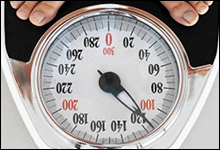 When talking to various people through the years, often people who are overweight credit a slow metabolism for their inability to reach a healthy weight. While there is such a thing as a slow metabolism, it’s rare, and it’s usually not what’s behind being overweight or obesity. The culprit is generally the lack of attention to diet and exercise.
When talking to various people through the years, often people who are overweight credit a slow metabolism for their inability to reach a healthy weight. While there is such a thing as a slow metabolism, it’s rare, and it’s usually not what’s behind being overweight or obesity. The culprit is generally the lack of attention to diet and exercise.
For arguments sake, let’s look at what metabolism is and how it affects your weight and life.
Dr. Donald Hensrud, with the Mayo Clinic explains metabolism as “the process by which your body converts what you eat and drink into energy. Even when you’re at rest, your body needs energy for functions such as breathing, circulating blood and repairing cells. The number of calories your body uses for these basic functions is known as your basal metabolic rate (BMR).”
In order to determine how many calories you need, generally speaking, multiply your weight by 10 (150 pounds times 10=1500 calories) then for each decade past 20-years-old take off 2%. That is your Basal Metabolic Rate (BMR). That number will adjust for activity level and lifestyle. You will want to determine which of the following groups you fit into and multiply your BMR by the affiliated percentage.
• Sedentary (sitting most of the day, with very little physical activity)—20% or 0.20
• Light activity (walking around campus, basic cleaning, cooking, walking the dog)—30% or 0.30
• Moderate activity (heavy housework, gardening, spend most of day on your feet)—40% or 0.40
• Very active (prolonged physical sports, regular training, outdoor work, manual labor)—50% or 0.50
Once you multiply the two numbers add them together and multiply that number by 1.10. This will add the appropriate number of calories needed for digestion. Now you have your base caloric number.
Several factors determine your basal metabolic rate:
- Your body size and composition. If you’re larger or have more muscle mass, you will burn more calories, even at rest. (So overweight people are more likely to have a faster metabolic rate — not a slower one.)
- Your sex. If you’re a man, you probably have less body fat and more muscle mass than a woman of the same age, so you burn more calories.
- Your age. As you get older, your muscle mass decreases, which slows down the rate at which you burn calories.
Rather than a slow metabolism, the factors that are more likely to contribute to weight gain include:
- Eating too many calories
- Not getting enough exercise
- Certain genetics and family history
- Taking medications
- Participating in unhealthy habits, such as skipping breakfast or not getting enough sleep
If you still think your metabolism is too slow, your doctor can check it or check for rare conditions that can cause problems with metabolism. But, chances are if you make some lifestyle changes, look to natural weight loss solutions and start picking up your activity level, you will start to see the weight drop off.

